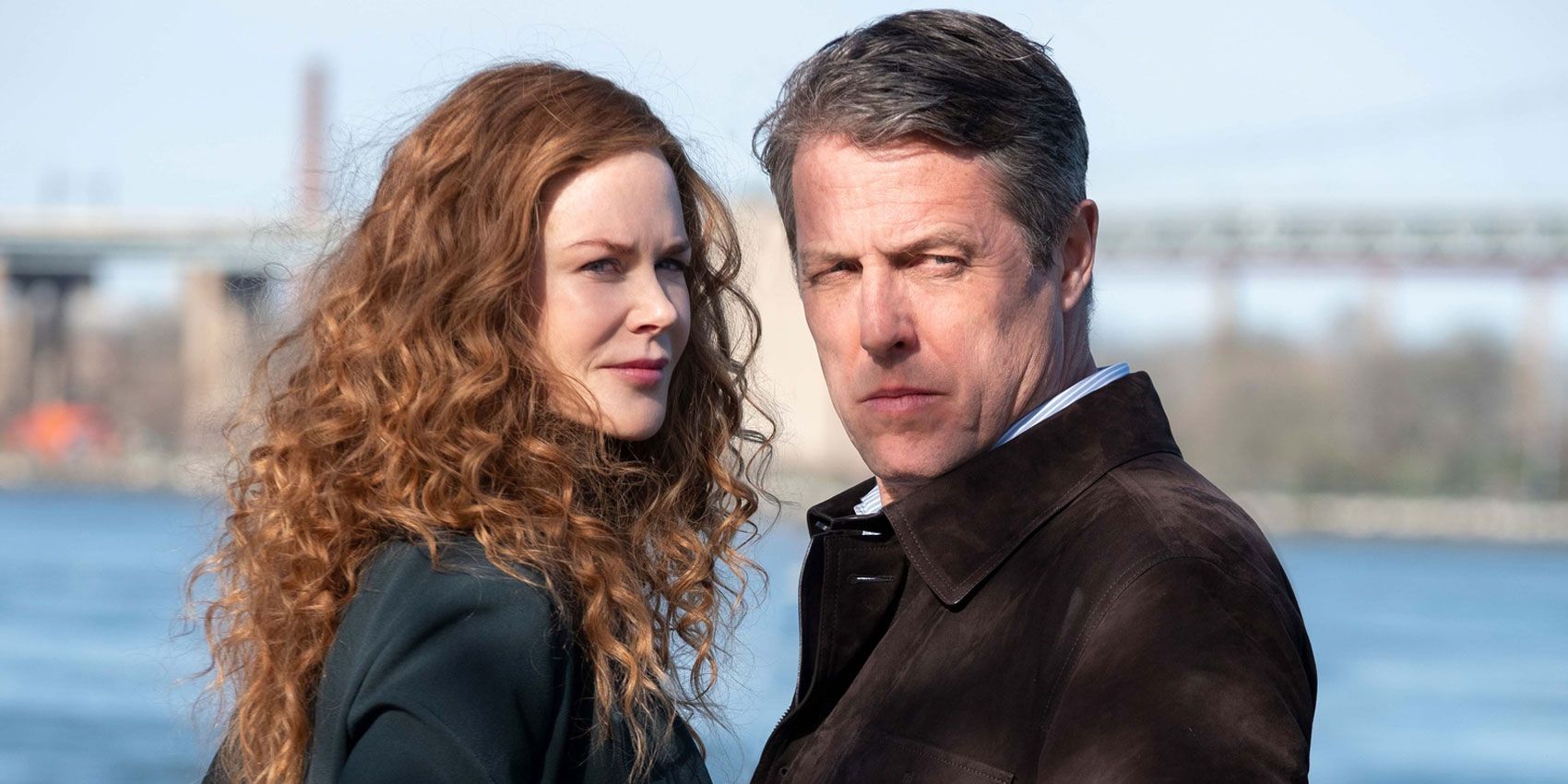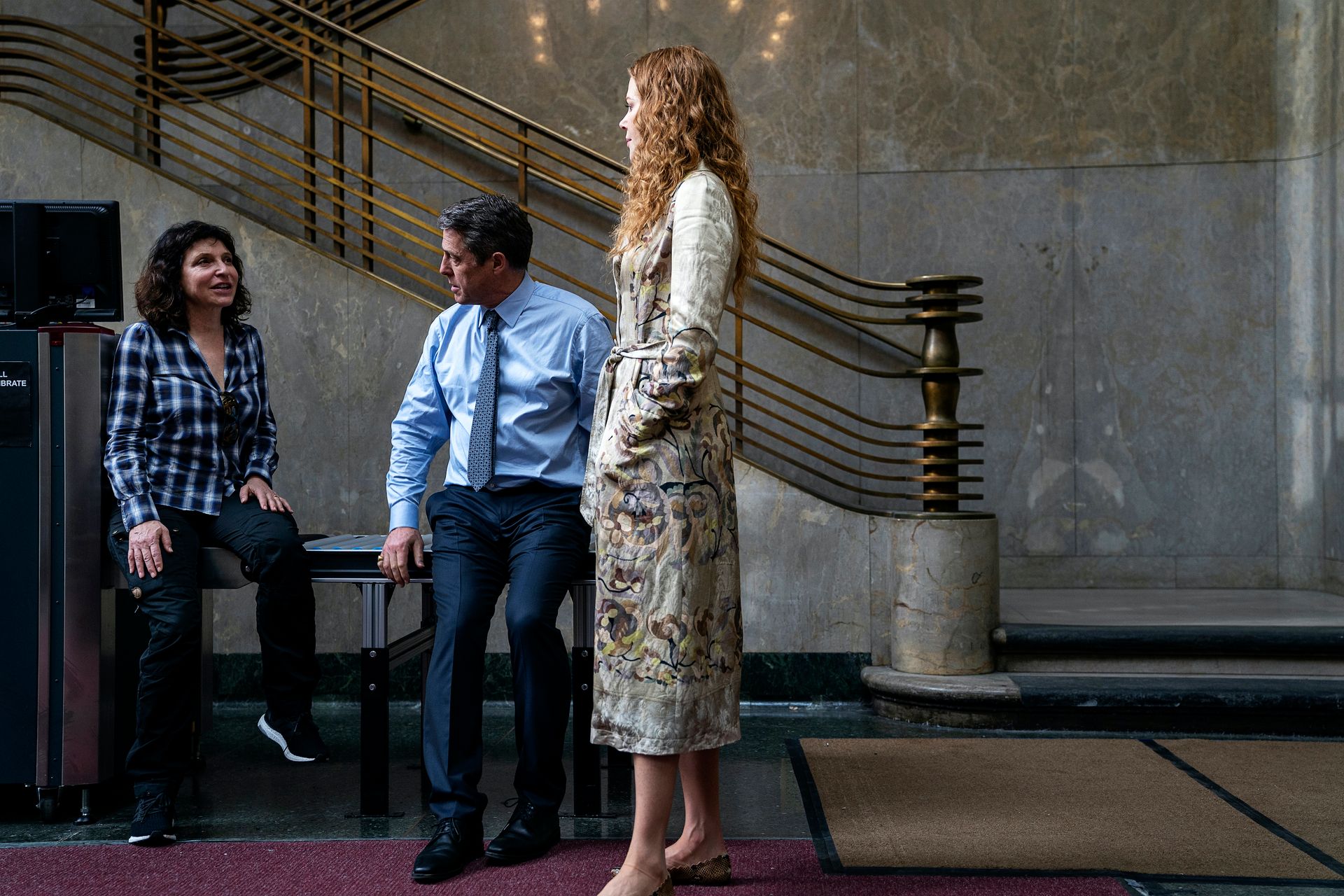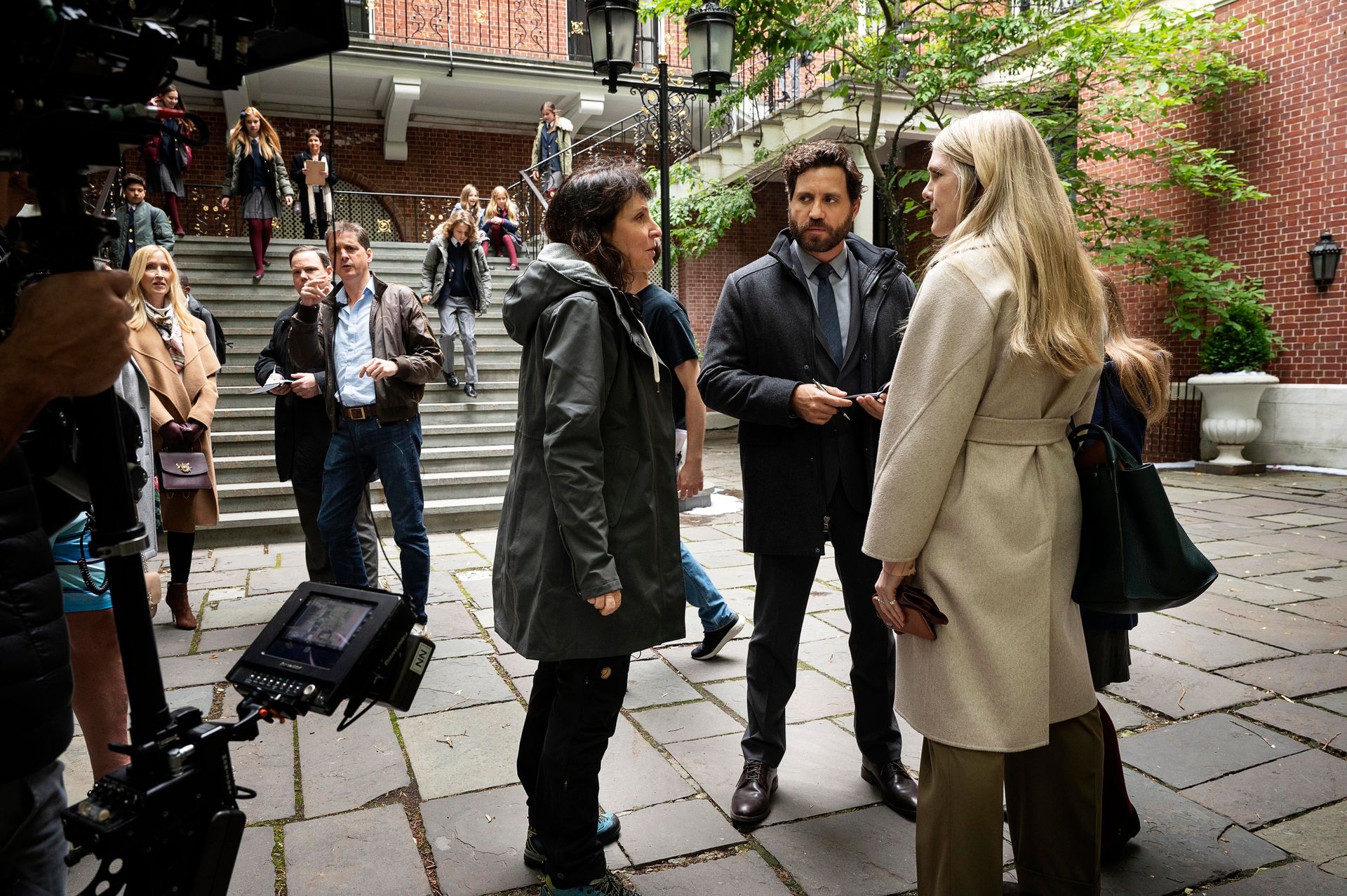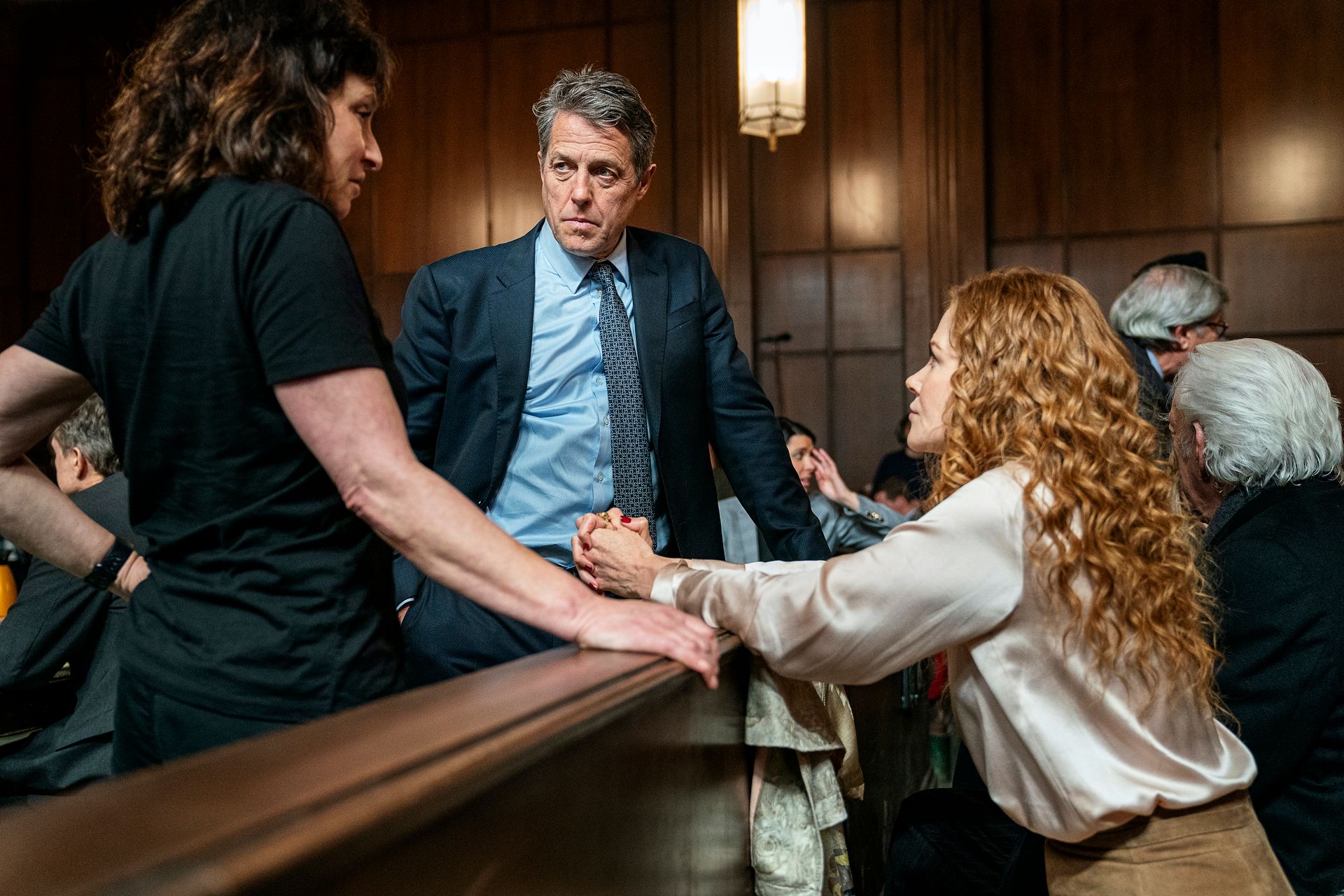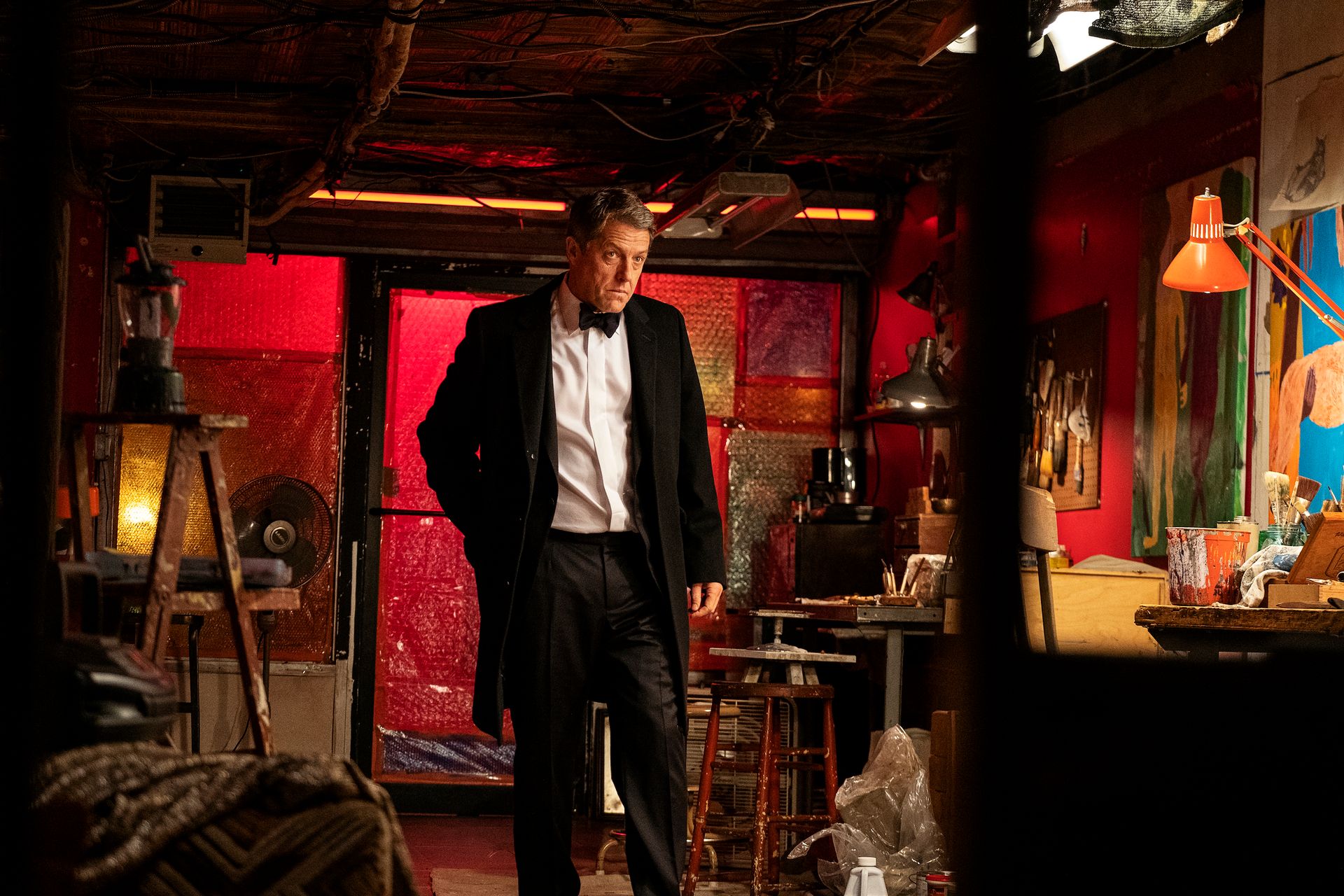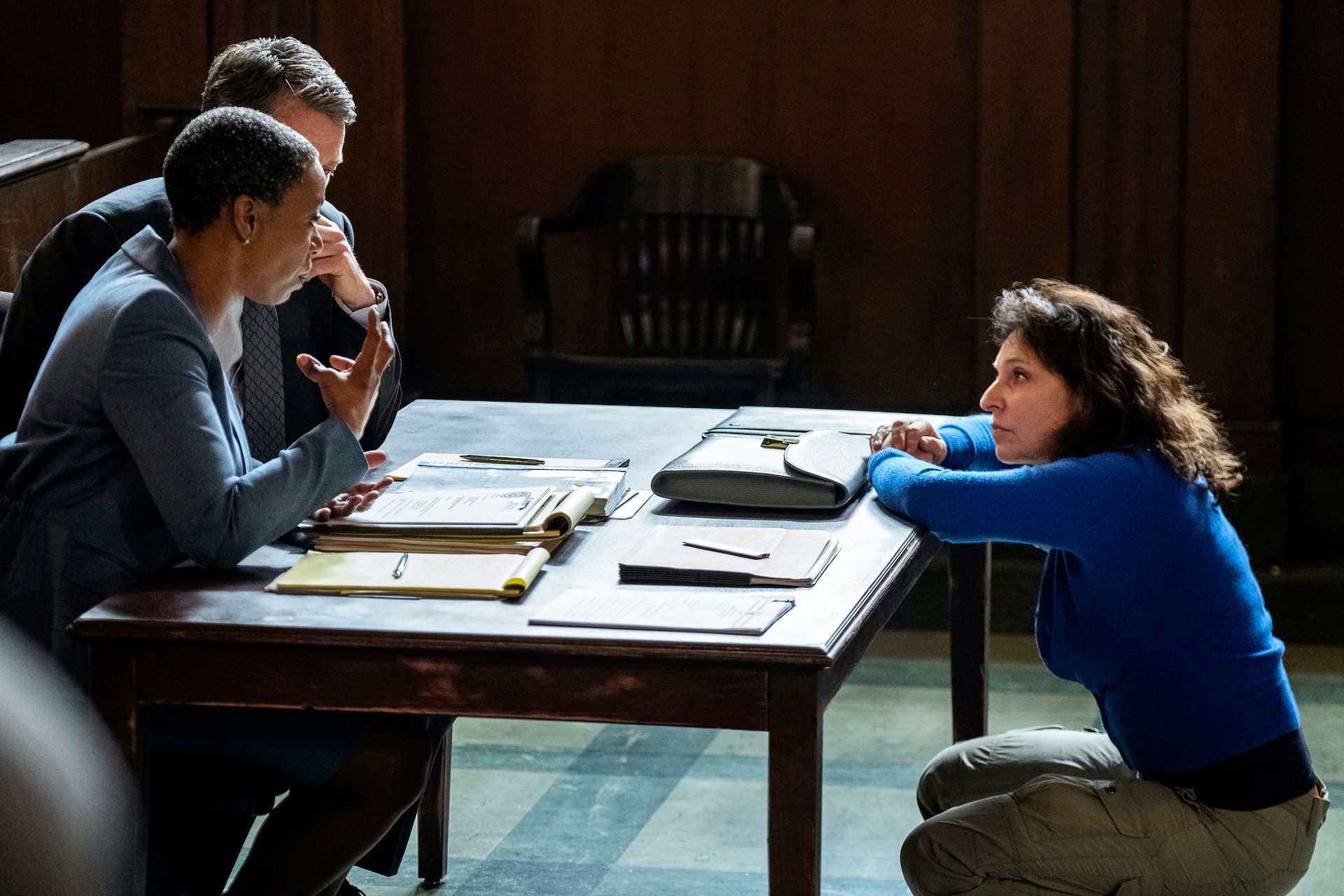Director Susanne Bier's career has veered from Oscar-winning Danish films with international appeal to taking on the challenge of multi-episode limited series which explore humanity's darkest impulses. Directing every episode of HBO's The Undoing, she told Collider, was an opportunity to explore what happens when "you are actually capable of not seeing what's in front of you." It also provided an opportunity for her to have a "pretty perfect" collaboration with writer David E. Kelley, telling the story of a clinical psychiatrist (Nicole Kidman) whose life is turned upside down after her husband Jonathan (Hugh Grant) is accused of murdering Elena (Matilda De Angelis), the woman he'd been having an affair with.
[Editor's note: The following contains spoilers through the season finale of The Undoing, "The Bloody Truth."]
We'll share the full interview with Bier soon as part of our Collider Connected series, but for now, check out Bier's thoughts below on the final chapter of the story, including when she knew who would be revealed as the killer, how she and Kidman approached the climatic courtroom scene where Grace turns the tables on Jonathan, and why she wanted the series to end exactly when it does.
How does it feel to have the finale of The Undoing out in the world?
SUSANNE BIER: What is so weird, because I'm in Copenhagen, they haven't actually seen it here so it's surreal for me. Because it's out there in the U S and a lot of other places, but my parents have been obsessed with it and they still haven't seen it. So, I'm weirdly relieved, but also very excited for them to see it.
You didn't feel like you could slip them a copy?
BIER: No.
So, from the beginning, did you always know who the murderer would end up being?
BIER: Yes, absolutely. The whole point of the series is that thing of even if you are a hugely intelligent, sensitive person, you are actually capable of not seeing what's in front of you. And that was whole point of the series, and that was the essence of what drew me and what drew David — what was exciting about the whole notion. And so there was no doubt it had to be Jonathan.
Then we had a lot of fun with the dance of trying to seduce the audience to use their imagination and think other things. But, just like Grace, the audience got somehow fooled by Jonathan, by his charm, by his likability, by a whole lot of things. And none of us really wanted to think it was him.
Yeah, there is very much a point in the miniseries where you hope it's not him. He's made mistakes, but he seems like a great guy, so why can't they just work it out?
BIER: Exactly. Exactly. That's the whole point. And I think we've all been confronted — I want to talk for at least most of the women I know, but probably a lot of men as well, that we've all, at some point in our lives bumped into that guy. We just really want to think he's super nice. And every rational thought points against him being a nice guy, but we still want to think it.
Of course. So in terms of that, most of the time with mysteries, you're expecting the unexpected person to ultimately be the killer. Here, he was the suspect from the beginning, and it turns out he did it. What was it about subverting that that appealed to you?
BIER: Because I think that trip, I think that arc of holding hands with Grace, of experiencing exactly what Grace is experiencing is a very fascinating, interesting trick. And I think that that was the point. And I do think it's thought provoking in a way, which it has been for me throughout the entire process.
Let me ask you a question. When was it very clear for you?
When was it clear that Jonathan did it?
BIER: Yeah.
Honestly, of course it's very, very clear when he actually picks up the hammer and actually hits [Elena] with it. That's the final moment. But I think honestly, once the flashbacks to that night started, I was like, "Unless they're going to show her son walking in and pulling the hammer away, no, it feels like this is just the two of them." But it did take a little time. So it's a very interesting question. Did you want it to be earlier or later?
BIER: No, but I think it's fluid a bit. Because I think it has to do with how you perceive Grace, and how you perceive what Grace does in the court case. Because once you realize she's playing him in the court, you go, "Oh, dear." And then you go, "Is she actually a villain?" But then it becomes very, very tricky thinking that she'd be the villain. And then when you get into the flashbacks, you definitely know it.
I'm glad you brought up the courtroom sequences, because those are really important to this episode, in terms of Grace making that choice. It does feel like it could just be her getting her vengeance for him just having the affair to begin with, like it doesn't necessarily need to be tied to the actual murder. In terms of directing that sequence, how did you and Nicole find that right balance of letting the audience in on what she's actually planning?
BIER: It's a very good question, because that's a super precocious balance. Because if you tell it too clearly, you lose the excitement of understanding it in real time. But if you don't make it clear, then you don't understand what she's doing, because it's a complicated legal conceit, in a way. And so it needs to be layered in, in advance. And it was very tricky. It was the call to Sylvia, Lily Rabe, "Hey, I need your help with something." The understanding that Lily Rabe probably told the prosecutor something. All of those small little bits, which prepares you for understanding that Grace is doing something, that she has a plan, that she has some kind of scheme. And then you need to experience it in real time.
But it's a very weird balance between being in control and being emotional.
How much was there in terms of block shooting? Were you able to shoot things relatively chronologically?
BIER: No, [it wasn't] shot chronologically. But I've never really been such a great fan of shooting chronological. Ever since I started, even at film school, it was always, "Hey, we need to shoot chronologically." And I always felt that there were gifts, there were odd, unexpected things in not shooting chronologically. Because you've shot something which comes way later in the storytelling, you've got something which you didn't anticipate. And a lot of filmmaking and television making is about all those gifts you didn't know was coming at you. And I often think not chronological does that a lot.
The reason I asked is I was curious if Grace's testimony was one of the later things you shot in the series.
BIER: It was. It was, I want to say it was just over halfway, we went to the court. I can't remember exactly how it went, but it was in the later half of the shoot, but not the actual ending.
Great. Speaking of the actual ending, it's a pretty quick series of events. And I'm sure that's from the script. Working with David E. Kelly, what did you really want those last 10 minutes to communicate?
BIER: I guess the main thing is, we've been dealing with that sociopath for almost six hours. And we've been seduced by him. We've been played by him. And I wanted to see the full force of his, I won't call it insanity, but that thing which is definitely not healthy in a sociopath, I wanted us to see it. I wanted us to feel it. I wanted us to understand it. And that's what the ending is about.
Having his son there adds such a different level to it than it would otherwise.
BIER: He's uncompromising in his, what do you call it, in his deceit of truth.
Hm. Well also, anyone who puts a lot of effort into creating a facade, the most terrifying things for them, the most dangerous thing for them, is losing it.
BIER: Yeah. But he's still almost believing his own lies. When the boy said, "Dad, you killed somebody," he says, "No, that wasn't me. That was someone else." He's able to, like a lot of sociopaths, able to twist it in his own mind, so no, he didn't really do anything wrong. I mean, somebody inside of him did it.
Yeah. If you had had the opportunity to just have one more scene at the end of the series, would you have wanted it, and what do you think you would have wanted it to be?
BIER: No, if I had wanted one more scene at the end of the series, it would have been there. So, no.
What is it for you about that cutting it off there that is important for you?
BIER: She has realized who he is, what he is. Henry has realized who he is, what he is. He's being taken away by the police. Yeah, there are things which hasn't been resolved, but I don't necessarily think that every single beat needs to be resolved. And maybe I'm just trying to convince David to write a Season 2.
Well, I think I saw some commentary. I think I saw that this is a commentary that Season 2 wasn't the most likely thing. But is that something you would be interested in?
BIER: Well, there's nothing on it. I'm just saying that. There are no plans for it. But I was just joking.
How was it working with David? Because when you have one writer and you have one director, you have to have, I think, a pretty good collaborative relationship.
BIER: We had a great collaborative relationship. I want to say pretty perfect. He's so smart. And he's so relaxed about it. He would send me things, I would comment on them, and we would have discussions. But it was totally collaborative.
When you guys are working together, are you guys both equally focused on story and tone? Or is he more like, I'll focus on the words, and I'll trust you to create what the show should feel like?
BIER: Yeah. I think that it's more the latter of the two. But I would also try out thoughts with him. I would also, "What do you think about this?" Or he would do the same. Because there is a intimacy with the material that I think the writer has and the director has at that point, and we know one of the consequences further down the line with this. I actually felt it was boringly uncomplicated, our collaboration. Sometimes it's easier talking about things which are tricky and difficult. I can't do that here.
All episodes of The Undoing are streaming now on HBO Max.

